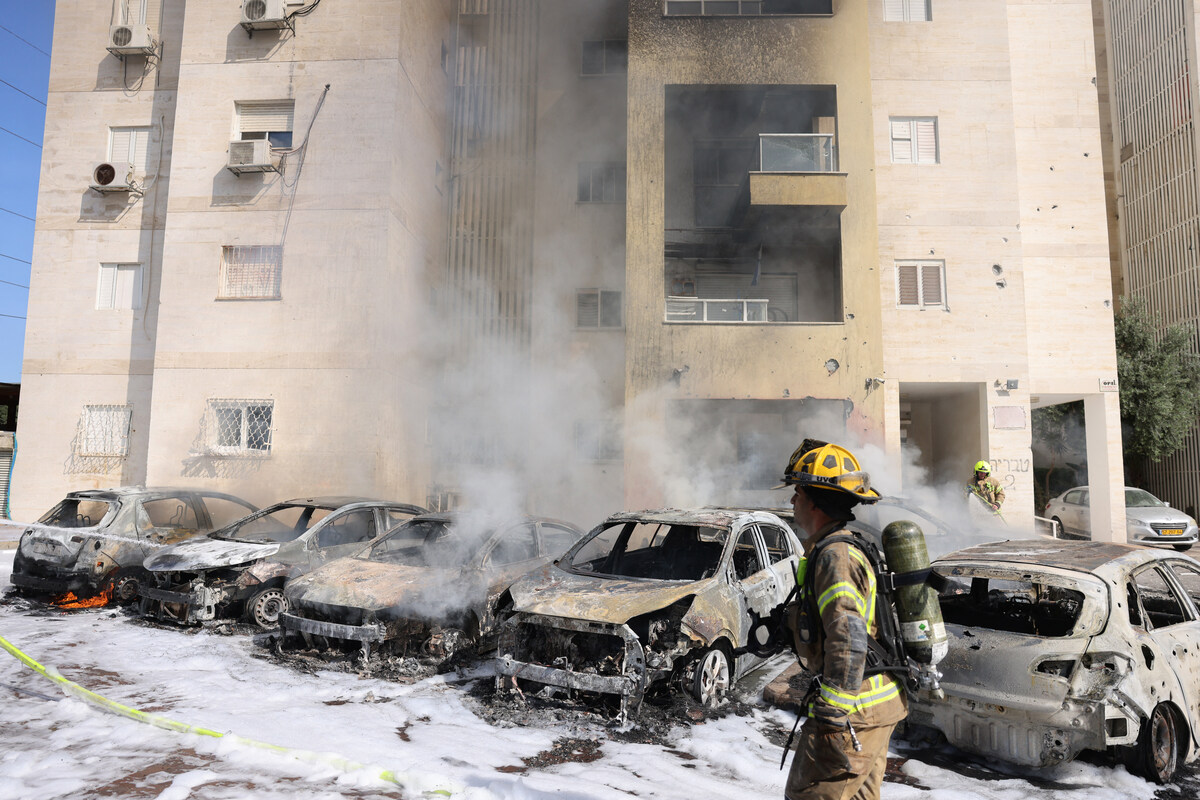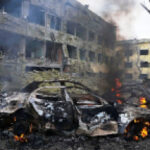There are strong indications that Nigerians may feel the economic effects of the ongoing war between Israel and Hamas in the coming days if the crisis persists.
Global oil prices have spiked since the fight erupted amid speculation that the conflict, which has claimed about 2000 lives on both end, could affect energy production in the Middle East.
In what appeared to be renewed hostilities, Palestine’s Hamas had invaded homes and public places, including a music festival venue in Israel Saturday morning, killing more than 900 people.
Israeli forces have since launched a reprisal, heavily pounding Gaza – a densely populated suburb where Hamas and over two million Palestinians reside – with airstrikes that have killed over 1,000 people so far.
Israel vs Gaza: Netanyahu trying to start another World War – Bolaji Akinyemi
Arsenal player under fire for pro-Israel social media comment
Amidst the war, global benchmark Brent Crude rose by 4.2 percent to $88.15 a barrel on Monday, while US benchmark West Texas Intermediate rose by 4.3 percent to $86.38 per barrel, Al Jazeera reports.
Although both Israel and Palestine are not major oil producers, markets have been jolted by fears that the conflict could lead to wider instability in the Middle East which is home to some of the world’s biggest major oil producers, including Iran and Saudi Arabia.
Notably, an increase in crude price worsened by a free fall in naira against dollar has caused a rise in the cost of refined petroleum products imported into Nigeria as local refineries remain moribund.
Experts warn that a further rise in crude price occasioned by the Israel-Hamas war might push up the pump price of Premium Motor Spirit otherwise known as petrol in Nigeria, thereby compounding the widespread hardship in the country.
Petrol currently sells between N568 and N620 per litre, up from N480-N520/litre when President Bola Tinubu announced subsidy removal during his inauguration on May 29. The announcement saw a steep jump in fuel price from N187-N190.
“If the price is going up in the international market, it will affect the pump price, since we are importing,” a seasoned economist, Professor Sheriffdeen Tella, said.
Millions of Nigerians have been seriously impacted by the subsidy removal as prices of food and transportation costs continue to hit the roof. The impact has spread to every sphere of the economy leading to an increase in school fees, especially in private schools, among others.
“If the war lingers, it will affect us shortly, not in the long run because those who are selling to us will sell at whatever price the international market dictates. The government will have to look for a way to cushion the effects,” Prof Tella warned, adding that “we should pray for the war to end in time.”
“Neither of the two (Israel and Palestine) are producing oil, but they have a role to play because all these things are linked together as they are supply routes. The price has been rising partly due to that war.
“If the NNPC has some reserve, that could assist, but if it doesn’t it will affect us in the short-run. It is either the domestic price (pump price) will rise or the government will have to pay some subsidy,” he said.
A Professor of Financial Economics at the Amercian University of Nigeria, Yola, Prof Leo Ukpong, maintained that the war would have direct and indirect effects on Nigerian economy, noting that crude oil market would be primarily affected.
He said, “If the oil producing countries around the Middle East, such as Iraq, Kuwait, Saudi Arabia, and Qatar, are drawn into the war, global oil prices will likely spike upwards. Increase in oil price will benefit Nigeria in the sense that our foreign reserve will experience an increase, everything else held constant.
“However, since Nigeria depends on import for refined oil products (petrol, diesel, kerosine, jet fuel, etc.), the increase in global crude oil prices will also lead to an increase in the price of these refined products and manufactured goods. In turn, the increase in refined crude products will likely wipe out any benefit we should have enjoyed from the rise in crude prices.
“When our high foreign debt servicing bills is factored into the picture, I doubt Nigeria’s economy will derive any net positive benefit from a rise in crude oil prices because of this war. Based on our recent past experiences, it is more likely that our economy would experience a net negative benefit.”
The don explained that until Nigeria build the refining capacity to meet domestic demands of refining crude products, the country would find it difficult to benefit from an increase in global oil prices.
War may disrupt flights
Beyond imminent hikes in oil price, fears are ripe that the crisis could disrupt international flights, including those from Nigeria, if it persists. On Monday, the Lagos State Government suspended the trip of the second batch of intending pilgrims scheduled to be airlifted to Israel on Tuesday.
The Board Secretary of the Lagos State Christian Pilgrims Welfare Board (LSCPWB), Mrs. Florence Gbafe, who announced the suspension in a statement, said the decision was as a result of keen observation of security situations in Israel.
“To all on the second batch of pilgrimage to Israel, kindly note that the pilgrimage is now on hold due to the war situation in Israel. Further information will be communicated as and when due please,” she had said.
Though flights between Nigeria and Israel have yet to be disrupted as Ethiopian Airlines and Qatar Airways continue to run flight operations to Tel Aviv Airport in Israel, there is an imminent reduction in flight frequencies.
“People still go to where they want to go and do what they want to do where there are no problems and come back. That is why there has been no announcement of flight cancellations to Israel. It is only when it gets to the extent that all their borders are closed that they cancel flights. If their border is not closed, flights will still go.
“The only thing that would happen is that they may reduce frequency because people will have reservations about travelling. If this happens, traffic will reduce and airlines will reduce frequencies,” the President of the National Association of Nigeria Travel Agencies, Susan Akporiaye, said.

 Join Daily Trust WhatsApp Community For Quick Access To News and Happenings Around You.
Join Daily Trust WhatsApp Community For Quick Access To News and Happenings Around You.


